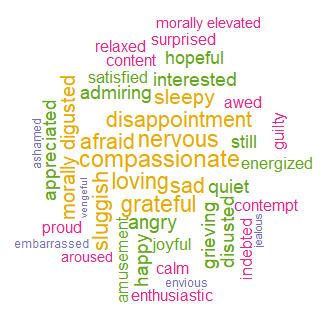Research Team
Dr. Eliza Bliss-Moreau (Associate Professor, Psychology) and Anthony Santistevan (Ph.D. Candidate, Psychology)
Project Description

The goal of our project is to understand how variation and diversity in emotional experiences and social experiences relates emotion regulation, coping, well-being, and life satisfaction and may be impacted by age during the pandemic. Our work draws upon and integrates three different lines of evidence in the psychological literature in order to evaluate how constraints imposed by the COVID19 epidemic (namely, changes to social life, increased risk to health) may impact coping and wellbeing. Evidence in the literature suggests that people who have more diverse emotional experiences, compared to those with limited diversity of emotional experiences, may cope more effectively with stress, resulting in greater levels of wellbeing and life satisfaction. Substantial evidence suggests that social relationships are critical to, and that dramatic changes to them may impede, health and wellbeing. Finally, work studying emotional and social experiences across the lifespan demonstrate that as people age, they prioritize close social relationships and experiences and interactions that promote positive emotional experiences. Our study, as designed, will allows us to evaluate whether established links between psychological processes persist or are altered in the context of COVID19, hopefully pointing us towards foundational building blocks of interventions to promote health and wellbeing.
Data collection for the first wave of the study was completed in April (30-day recruitment for community sample, 3-week recruitment for university sample) and data analyses are underway. The global community sample included 2,659 participants who completed some portion of the survey. The UC Davis sample included 209 participants who completed some portion of the survey.